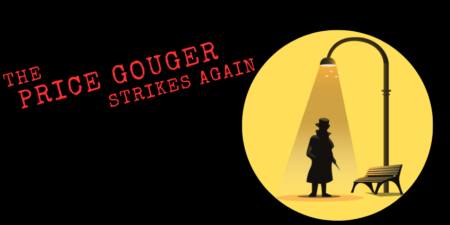A recent inquiry into price gouging has recommended that businesses be named and shamed if they unfairly raise prices.This month, the Australian Council of Trade Unions (ACTU) released its inquiry into price gouging, chaired by the former head of the Australian Competition and Consumer Commission (ACCC), Professor Allan Fels, AO. The inquiry explored price hikes across the entire economy, from childcare to aviation, energy bills to supermarket prices.
Among its conclusions were two important points. First, prices have increased significantly across all the sectors covered by the inquiry. Second, (as we argued in our submission to the Senate’s supermarket price inquiry), these price increases have been largely caused by companies raising their profits while everyone else does it tough.
Excuses, excuses…
In their submission to the Senate’s inquiry, Coles tried to explain their price increases by pointing to “External factors impacting global supply chains” (i.e. COVID-19, the invasion of Ukraine, etc.). They also suggested that their suppliers were driving the prices up, but this conflicts with what farmers have been saying about the prices they get from the two major supermarket chains. While the ACCC’s investigation into supermarket prices will be able to see all the details of the supermarkets’ prices, the ACTU’s findings are already painting a damning picture for corporate profits.
A possible solution
One of the ACTU’s recommendations for reining in corporate price gouging is to revive a Howard Government policy from the early 2000s that would enable the ACCC to name and shame companies that raised their profits significantly higher than their input costs. In 2000, when the Coalition Government under John Howard introduced the Goods and Services Tax (GST), it also gave the ACCC the power to publicly declare when businesses raised their prices higher than what was added by GST. The logic behind the decision was simple: Consumers will be expecting a price increase, but they may not always know by how much prices will go up, so businesses have to be called out if they exploit consumers’ confusion in order to increase their prices and their profits.
While naming and shaming does not go as far as the price controls that a lot of people have called for, it may still be an effective strategy to bring down prices, or at least limit the ability of businesses to keep raising them. It’s worth noting that the prices of some groceries dropped earlier this month, seemingly in response to a swell of public pressure and the looming threat of the ACCC inquiry. So, calling out bad practices and equipping consumers with additional information can’t hurt.
Our position
CPSA supports any policies or regulatory changes that protect consumers from unfair prices. We also support greater transparency in price setting practices and greater information for consumers.
Related Articles
This month, the Australian Council of Trade Unions (ACTU) released its inquiry into price gouging, chaired by the former head of the Australian Competition and Consumer Commission (ACCC), Professor Allan Fels, AO. The inquiry explored price hikes across the entire economy, from childcare to aviation, energy bills to supermarket prices.
Among its conclusions were two important points. First, prices have increased significantly across all the sectors covered by the inquiry. Second, (as we argued in our submission to the Senate’s supermarket price inquiry), these price increases have been largely caused by companies raising their profits while everyone else does it tough.
Excuses, excuses…
In their submission to the Senate’s inquiry, Coles tried to explain their price increases by pointing to “External factors impacting global supply chains” (i.e. COVID-19, the invasion of Ukraine, etc.). They also suggested that their suppliers were driving the prices up, but this conflicts with what farmers have been saying about the prices they get from the two major supermarket chains. While the ACCC’s investigation into supermarket prices will be able to see all the details of the supermarkets’ prices, the ACTU’s findings are already painting a damning picture for corporate profits.
A possible solution
One of the ACTU’s recommendations for reining in corporate price gouging is to revive a Howard Government policy from the early 2000s that would enable the ACCC to name and shame companies that raised their profits significantly higher than their input costs. In 2000, when the Coalition Government under John Howard introduced the Goods and Services Tax (GST), it also gave the ACCC the power to publicly declare when businesses raised their prices higher than what was added by GST. The logic behind the decision was simple: Consumers will be expecting a price increase, but they may not always know by how much prices will go up, so businesses have to be called out if they exploit consumers’ confusion in order to increase their prices and their profits.
While naming and shaming does not go as far as the price controls that a lot of people have called for, it may still be an effective strategy to bring down prices, or at least limit the ability of businesses to keep raising them. It’s worth noting that the prices of some groceries dropped earlier this month, seemingly in response to a swell of public pressure and the looming threat of the ACCC inquiry. So, calling out bad practices and equipping consumers with additional information can’t hurt.
Our position
CPSA supports any policies or regulatory changes that protect consumers from unfair prices. We also support greater transparency in price setting practices and greater information for consumers.
